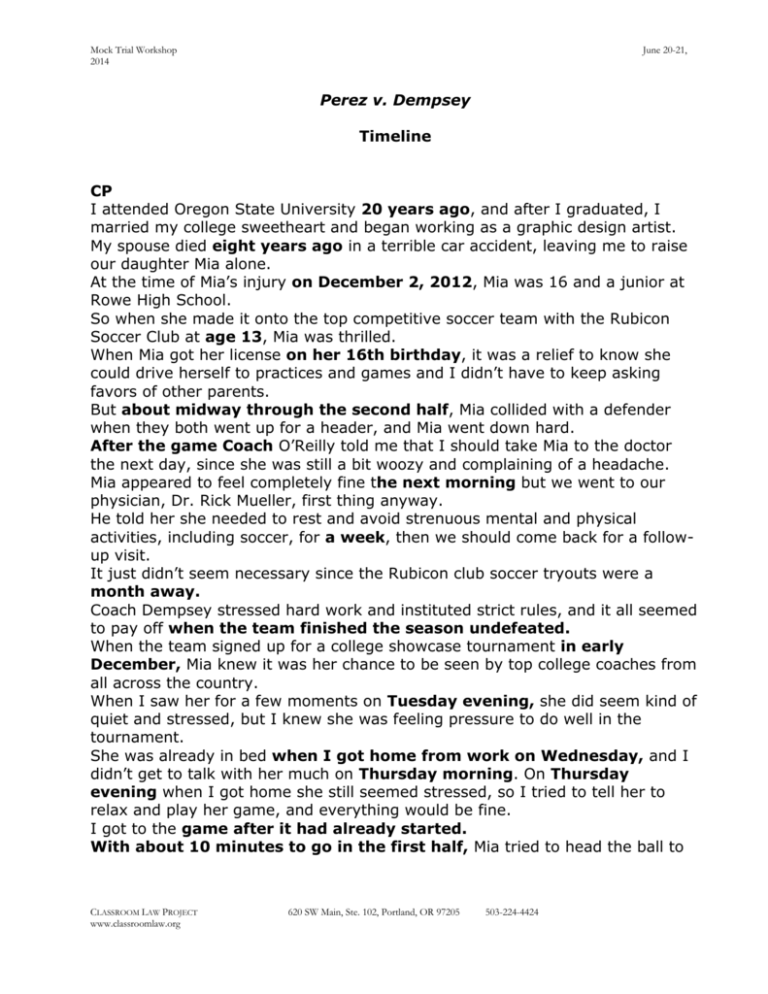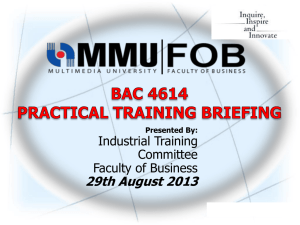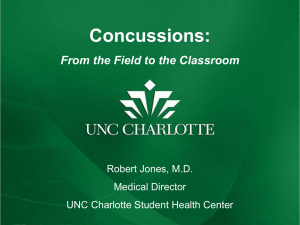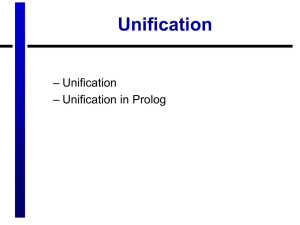Timeline - Classroom Law Project
advertisement

Mock Trial Workshop 2014 June 20-21, Perez v. Dempsey Timeline CP I attended Oregon State University 20 years ago, and after I graduated, I married my college sweetheart and began working as a graphic design artist. My spouse died eight years ago in a terrible car accident, leaving me to raise our daughter Mia alone. At the time of Mia’s injury on December 2, 2012, Mia was 16 and a junior at Rowe High School. So when she made it onto the top competitive soccer team with the Rubicon Soccer Club at age 13, Mia was thrilled. When Mia got her license on her 16th birthday, it was a relief to know she could drive herself to practices and games and I didn’t have to keep asking favors of other parents. But about midway through the second half, Mia collided with a defender when they both went up for a header, and Mia went down hard. After the game Coach O’Reilly told me that I should take Mia to the doctor the next day, since she was still a bit woozy and complaining of a headache. Mia appeared to feel completely fine the next morning but we went to our physician, Dr. Rick Mueller, first thing anyway. He told her she needed to rest and avoid strenuous mental and physical activities, including soccer, for a week, then we should come back for a followup visit. It just didn’t seem necessary since the Rubicon club soccer tryouts were a month away. Coach Dempsey stressed hard work and instituted strict rules, and it all seemed to pay off when the team finished the season undefeated. When the team signed up for a college showcase tournament in early December, Mia knew it was her chance to be seen by top college coaches from all across the country. When I saw her for a few moments on Tuesday evening, she did seem kind of quiet and stressed, but I knew she was feeling pressure to do well in the tournament. She was already in bed when I got home from work on Wednesday, and I didn’t get to talk with her much on Thursday morning. On Thursday evening when I got home she still seemed stressed, so I tried to tell her to relax and play her game, and everything would be fine. I got to the game after it had already started. With about 10 minutes to go in the first half, Mia tried to head the ball to CLASSROOM LAW PROJECT www.classroomlaw.org 620 SW Main, Ste. 102, Portland, OR 97205 503-224-4424 Mock Trial Workshop 2013 June 20-21, score on a corner kick, and it looked like she took an elbow to the head. In fact, she almost scored a goal about 5 minutes in, but the goalkeeper made a great save. About 10 minutes later a teammate passed the ball to Mia right outside the penalty box, and Mia started dribbling toward the goal. The referee stopped play immediately and Coach Dempsey ran out on the field. She finally woke up about an hour after we got there but she seemed really “out of it.” They kept her overnight for observation, and they talked with both of us about what to watch for and how it might be days or even weeks before Mia fully recovered Mia started having serious migraines a few days after she was discharged. I kept her out of school since it was almost the winter break and I hoped she would get better before the new semester started. In fact, she hasn’t been able to return to school since the injury. She still has intense headaches, dizziness, and even nausea, even though it’s over a year later. After Mia woke up in the hospital, she told me that she took a hard hit to the head in practice on Monday before the tournament but Coach Dempsey never did anything about it, and certainly didn’t inform me about it. Money can never make things right but at least it can help us afford all of the therapy and educational support services that Mia will need in the future. BR For nearly twenty years my research has focused on the diagnosis and longterm neurological impact of sport-related concussions. More recently, our center has also begun focusing on injury awareness and prevention among youth athletes. I saw Mia Perez in February of 2013 after her concussion in December of 2012. I became interested in studying concussions about 20 years ago when I worked as an athletic trainer for an NFL pro football team. I suffered a concussion as a high school soccer player myself. In the last ten to fifteen years we’ve begun to realize how serious the longterm effects of repeated concussions can be. Now we realize that youthful brains are actually more vulnerable and it can take youth athletes longer to recover than adults. Every year, U.S. emergency departments treat more than 120,000 youth aged 10-19 for sports and recreation-related TBIs. Immediately after a blow to the head that causes a concussion, certain 2 CLASSROOM LAW PROJECT www.classroomlaw.org 620 SW Main, Ste. 102, Portland, OR 97205 503-224-4424 Mock Trial Workshop 2013 June 20-21, signs may be observed. Data from 2005-06 through 2010-11 revealed that during a six-year period, an estimated 120,000 concussions were sustained by high school boys’ soccer players nationwide and 170,000 concussions by high school girls’ soccer players. When an athlete is suspected of having sustained a concussion, it is very important that he or she be removed from play right away and not be allowed to go back in the game that day. After sustaining her first concussion last spring, Mia was at greater risk for a subsequent concussion even with a lesser application of force. Most players who have sustained a mild concussion are symptom-free within a week to ten days, but it takes others much longer to recover. For instance, after a second concussion, a player should sit out for a minimum of 2 weeks even if 36 the symptoms all clear up within 30 minutes of the incident. In my evaluation of Mia Perez at the Center in February, I conducted a number of assessments, I evaluated her again in early August, and although her symptoms were marginally improved, she was still unable to tolerate more than one online class for school. From my assessments and interviews with Mia and Casey Perez, it appears that Mia may have suffered one concussive event on Monday, November 26, and very likely suffered two concussive events on December 2, 2012. The die was cast when Coach Dempsey left Mia in the game after the first event on December 2, for the occurrence of a second blow in the same game is almost certainly a key factor in her ongoing and debilitating problems. Given the seriousness of her condition more than a year after her injury, it is strongly likely that Mia will continue to suffer significant physical and cognitive problems for the rest of her life. Max’s and Jenna’s laws passed by the Oregon legislature in 2009 and 2013, respectively, are a good start. 3 CLASSROOM LAW PROJECT www.classroomlaw.org 620 SW Main, Ste. 102, Portland, OR 97205 503-224-4424 Mock Trial Workshop 2013 June 20-21, TOR Before graduating, I began coaching youth soccer part-time at Triad Soccer Club and started attending soccer coaching courses. On more than one occasion, I saw Jordan kick chairs or trashcans when his/her team was losing. When I first started coaching, we didn’t learn much about concussions in my training classes. But several years ago I heard in the news about several high school football players who died after suffering a second concussion in a game or practice. In 2010, I learned about the “Heads Up” concussion awareness initiative of the Centers for Disease Control and Prevention and Oregon’s Max’s Law. That fall I began implementing the CDC recommendations at the beginning of the season. When the girls’ season began in the spring of 2012, I knew they had the potential to make the playoffs. So I think the whole town was in the bleachers when we faced Carthage at home in May. But about 20 minutes into the half, Mia collided with a Carthage player when trying to score on a header. Ten minutes later Carthage scored and Mia begged to go back in, but there was no way I was going to do that. After things calmed down, I spoke with Mia and her parent and told them she needed to go to a doctor the next day because I suspected she might have a concussion. When she left that night, Mia said “Don’t worry, Coach, I’ll be ready to play the next game. Max’s Law became law in Oregon in 2009 and it requires schools to follow a particular procedure before allowing athletes to return to play after a concussion. The law didn’t apply to clubs like Rubicon but that changed this summer when the legislature passed Jenna’s Law. Anyway, Mia did see a doctor the next day and I learned that he said she needed to rest for a week and then return to see him. That’s why I remember thinking that she must be getting sick the week after Thanksgiving when she asked to sit out halfway through our Zumba session on Tuesday. On Thursday she didn’t seem any better so I gave her a pass to go to the library to study instead of sitting around in the gym. The next Monday I heard that Mia had sustained a serious concussion at the soccer tournament. She has not come back to classes on campus at all since that weekend because of her lasting injuries. The dangerous effects of concussions had been in the news long 4 CLASSROOM LAW PROJECT www.classroomlaw.org 620 SW Main, Ste. 102, Portland, OR 97205 503-224-4424 Mock Trial Workshop 2013 June 20-21, before Mia was injured in December, and the CDC materials have been available online for several years. SD In 2009 I began coaching soccer full time for the Rubicon Soccer Club. I was the second leading scorer on my team in my senior year. I also coached part time at Rubicon during my last two years in college. After I got my “D” license, the club moved me up from coaching challenge teams to coaching three classic level teams. In early July of 2012, Michelle Foudy, the coach of the Rubicon U-17 girls’ Premier team, found out that her dad had been diagnosed with cancer and wouldn’t live past Christmas. When we began holding our regular practices on Mondays, Wednesdays, and Thursdays, I was very impressed by their skills and teamwork. We went on to win the State Cup championship two weeks before Thanksgiving. All we had left now was the December College Showcase tournament, one week after Thanksgiving. We didn’t practice the week of Thanksgiving but resumed practice the next Monday. During the scrimmage at the end of practice, Mia was tripped, fell, and hit her head on the ground pretty hard. … so I made her sit out the last 10 minutes while I finished leading practice. Mia headed to her car before I could talk with her. I meant to call and check on her but it was too late when I got home and it slipped my mind the next day. Mia emailed me on Wednesday to say she had had a big test and couldn’t make practice. On Thursday we just had a light practice; Mia seemed tired and quieter than usual. When I asked her how her test had gone, she acted confused for a moment and then said it went okay. But about 10 minutes into the game, I noticed that Mia wasn’t playing as well as usual so I subbed her out to check on her. After she drank some water, I subbed her in and she did play better. Mia sort of stood around for a minute looking disgusted that she didn’t score Before I could reply, the referee blew his whistle to start the second half and Megan had to run onto the field. After the game ended, I called Casey’s cell phone to get an update on Mia. It must have been three hours later before I got a call back. 5 CLASSROOM LAW PROJECT www.classroomlaw.org 620 SW Main, Ste. 102, Portland, OR 97205 503-224-4424 Mock Trial Workshop 2013 June 20-21, Casey also told me that Mia had suffered a concussion in the spring on her school team and I should have known to keep a closer eye on her. I knew she hit her head in practice on that Monday but players hit their heads in practice all the time. When I was playing soccer in college we just played through the pain; a little dizziness didn’t stop me from playing JR I am 39 years old and have been the Director of the Rubicon Soccer Club since 2006. In 2004 I became the fulltime Director of Player Development for the Under-15 through Under-18 year old teams at Triad. Rubicon was the “new kid on the block” back then; the club had only been in existence since 2005 and was still trying to “prove” itself. Every year about a dozen of our players earn college soccer scholarships. When I checked last summer, I found that fewer than half of the soccer clubs in the state have any kind of nutrition or hydration information posted on their website, much less any additional information on injury prevention. I was not aware of any information about concussions on the USYS or USSF sites when Mia was injured. After Mia was injured, I did a specific search on the USYS site and found concussion protocol and notification forms that were posted in August. I do know that the USSF started posting medical information on a variety of topics on their site last March. Obviously, that was too late to help Mia Perez I do remember seeing some free “Heads Up” concussion kits for coaches at a Triad Soccer Club tournament back in November. I was at the College Showcase tournament in December when Mia was injured. Mia looked a bit uncoordinated to start the second half, and she wasn’t playing with her usual intensity. The ambulance at the soccer complex soon arrived and took Mia to the hospital. I called Shannon that night to see if s/he had heard anything and was told that Mia had suffered a serious concussion. I’m very sorry that Mia was injured that day. And sure, Max’s Law was passed in 2009 so stories on concussions were probably in the news at that time. But I didn’t see them and the law did not apply to clubs anyway. And Jenna’s Law was not passed until after Mia’s injury 6 CLASSROOM LAW PROJECT www.classroomlaw.org 620 SW Main, Ste. 102, Portland, OR 97205 503-224-4424 Mock Trial Workshop 2013 June 20-21, CD We’ve been friends since middle school when we both ran track. Mia made the varsity soccer team her freshman year. In February 2012, Mia even organized a free soccer clinic for underprivileged kids in the community. I took Advanced Personal Fitness class under Coach O’Reilly in the fall of my junior year and I can see why Mia and the other players are so impressed. I remember Mia being upset after tryouts because her best friend got dropped down onto the second team. Some of the joy of the game seemed to drain out of Mia after that and she often looked a bit worried if she thought she might be getting sick before a game. The way our classes were structured, we all had a bunch of big tests the week right after Thanksgiving. She said she was looking forward to practice that week because she knew it would help her be prepared when the games started on the weekend. Tuesday when she got to our Advanced Personal Fitness class, she seemed different, quieter than usual and kind of “down.” 7 CLASSROOM LAW PROJECT www.classroomlaw.org 620 SW Main, Ste. 102, Portland, OR 97205 503-224-4424








